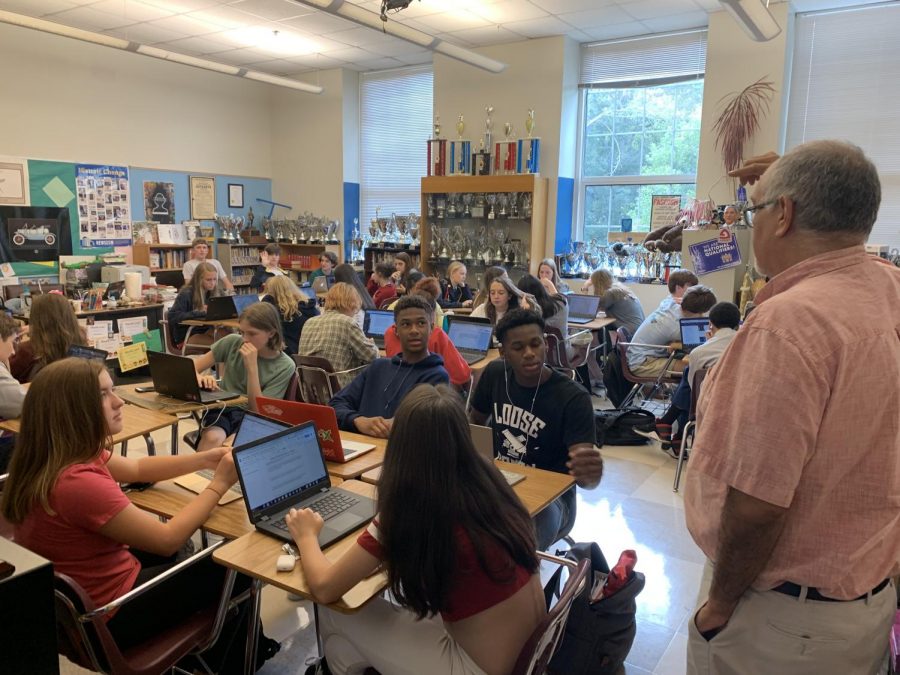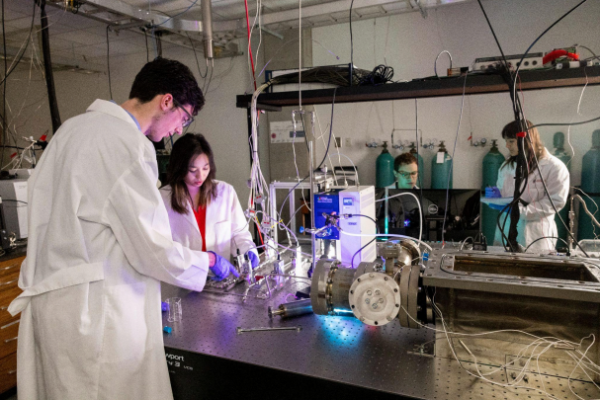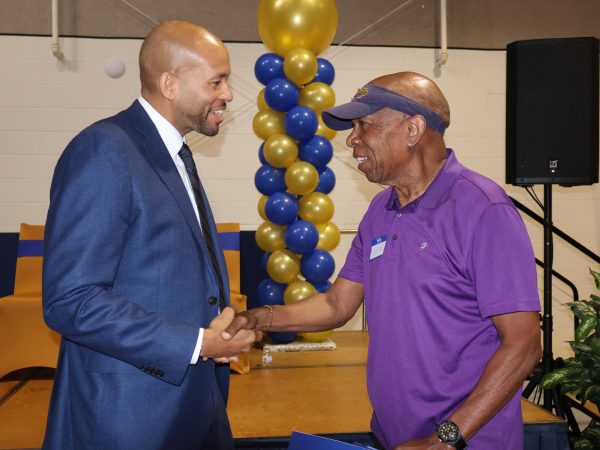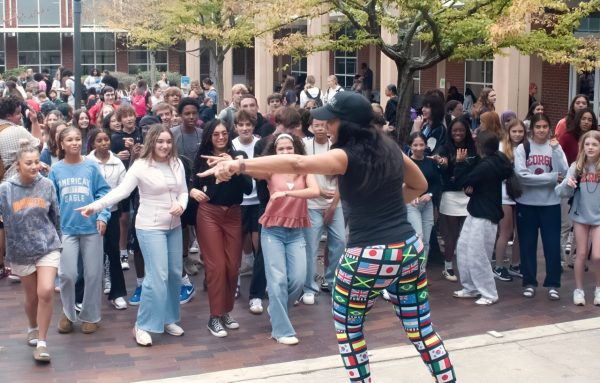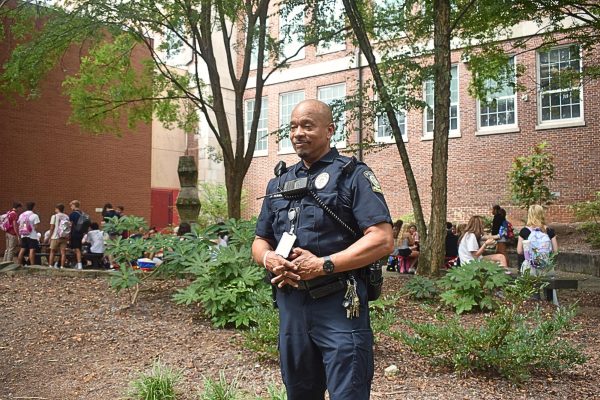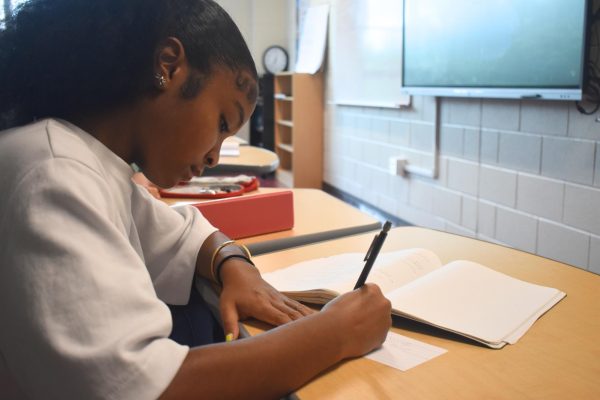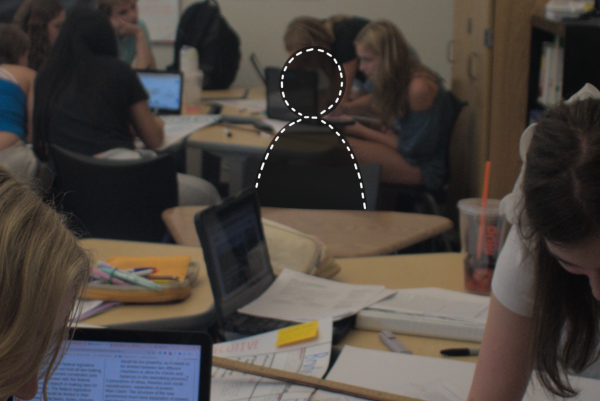New AP Seminar Curriculum Engages Students
FIRST-CLASS CURRICULUM: AP Seminar teacher Mario Herrera speaks to his class. Herrera led the effort to implement a new AP Seminar curriculum at Grady.
The African diaspora is now part of the AP Seminar course.
Developed by the College Board and a consortium of partner universities, the curriculum is in the pilot stage at 11 schools across the country, including Grady.
“It focuses on the African diaspora and connecting it to real-world problems that exist for that community today —what that looks like and proposing solutions,” AP Seminar teacher Susan Salvesen said.
Previously, AP Seminar allowed students more freedom in choosing what topics to study, with class-discussions focusing on subjects chosen by teachers. The new curriculum means all coursework will be connected by a common theme, though students can still choose specific areas of focus for class projects.
“It’s just another lens to look at the AP Seminar curriculum through,” Salvesen said. “Last year, our students were responsible for their own learning. They chose more of their own topics. This year, they’re choosing their own topics, but it’s tied to this curriculum.”
Subjects already explored through the new curriculum include slavery, criminal justice issues, hate crimes and gentrification. Sophomore Jha’Quez Wright believes these topics have created an engaging classroom environment.
“I feel like there’s been more participation,” Wright said. “I found myself paying attention in this class. I often goof-off in class, but in this class, I’m more serious and more interested in learning about the African diaspora and what’s going on in our society.”
AP Seminar teacher Mario Herrera, who helped bring the curriculum to Grady, said the response from students indicates an increased interest in the course. The curriculum’s inclusion of topics rarely discussed in other classes has prompted students to think deeply, he said.
“We were having a discussion, and it was really quiet,” Herrera said. “Students weren’t really participating.Then one student made the point that the reason that happened was a lot of people didn’t have the words to express what was going through their head.”
Salvesen, who has witnessed a similar response from her students, says the impact of the new curriculum is already becoming visible.
“What I’m seeing with my sophomores is all these lightbulbs are going off,” Salvesen said. “They’re like, ‘well, this is because of this’ and ‘this event triggered this,’ and they’re making connections for a group of people that have suffered for a long period of time, and it has new meaning now.”
Herrera attended training in Princeton, N.J. in July that focused on the curriculum. The training prepared Herrera to effectively teach the course, he said.
“We know that we also have things to learn,” Herrera said. “For me, [the curriculum] pointed out a bit of a hole in my education.”
Herrera said he and Salvesen “are talking about it all the time because we want it to be enriching. It’s a process for us as well.”
In the reshaped AP Seminar course, students simultaneously explore topics such as gentrification and criminal justice while studying slavery and other historical injustices. According to sophomore Georgia Rice, this has allowed students to connect in-class discussions to real-world events.
“I think it’s a good topic because it ties into a lot of things that we are learning in other subjects in school,” Rice said. “It’s something that is easy to relate to things that are happening today.”
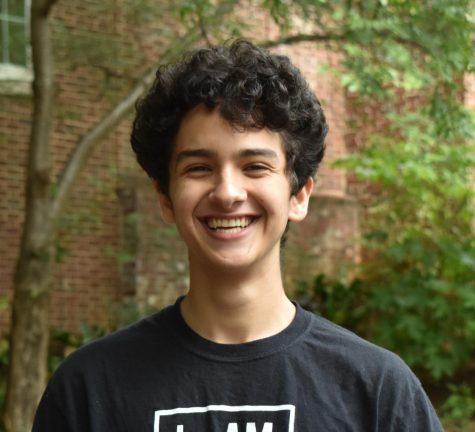
Royce is a Senior in his second year at Grady. He is a member of the Grady Governance Team and is the President of Amnesty International Club.

